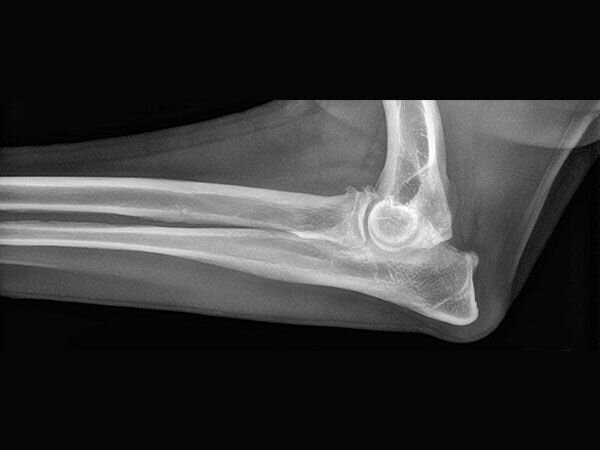What is Elbow Disease?
Elbow disease, or elbow dysplasia, is a collective term for a group of developmental orthopedic conditions that affect the elbow joint in dogs, primarily in larger breeds. These conditions often involve abnormal growth and development of the bones and cartilage within the joint, leading to joint instability, pain, and arthritis.
Common Forms of Elbow Disease
The most common forms of elbow disease in pets include:
- Osteochondritis Dissecans (OCD): This condition involves the formation of abnormal cartilage and bone in the elbow joint, which can lead to joint pain and lameness.
- Fragmented Coronoid Process (FCP): FCP occurs when a piece of bone within the elbow joint becomes fragmented, causing pain and dysfunction.
- Ununited Anconeal Process (UAP): UAP is a condition where a specific bone in the elbow fails to fuse properly during growth, leading to joint instability.
Causes and Risk Factors
While the exact causes of elbow disease can vary, genetics, rapid growth, and improper nutrition during puppyhood can contribute to its development. Large and giant dog breeds are particularly susceptible to these conditions.
Symptoms of Elbow Disease
Pets with elbow disease may exhibit the following symptoms:
- Lameness: Limping or favoring one leg, especially after physical activity.
- Stiffness: Difficulty in moving the affected limb, particularly upon waking or after rest.
- Decreased activity: Reluctance to play, exercise, or perform normal activities.
- Pain: Pets may display signs of pain, such as vocalization or guarding the affected limb.
Diagnosis and Treatment
Diagnosing elbow disease often involves a physical examination, X-rays, and possibly advanced imaging techniques like CT scans or MRI. Treatment options may include:
- Medications: Pain relievers and anti-inflammatory drugs to manage pain and inflammation.
- Weight Management: Maintaining a healthy weight to reduce joint stress.
- Surgery: Surgical interventions to remove bone fragments or correct bone abnormalities may be necessary in some cases.
- Physical Therapy: Exercises and rehabilitation to improve joint strength and mobility.
Compassionate Care for Your Pet
At Lenity, we are dedicated to providing compassionate and personalized care for pets with elbow disease. Our experienced veterinary team will work closely with you to develop a tailored treatment plan that best suits your pet’s needs and lifestyle.


